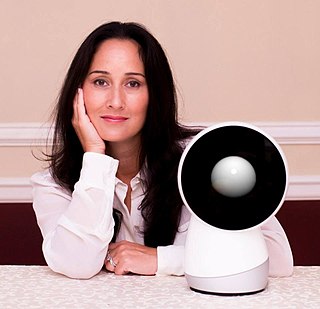A Quote by Lance Morrow
For now, we assume that self-evolving robots will learn to mimic human traits, including, eventually, humor. And so, I can't wait to hear the first joke that one robot tells to another robot.
Related Quotes
In the smart home of the future, there should be a robot designed to talk to you. With enough display technology, connectivity, and voice recognition, this human-interface robot or head-of-household robot will serve as a portal to the digital domain. It becomes your interface to your robot-enabled home.
Some people think that, inevitably, every robot that does any task is a bad thing for the human race, because it could be taking a job away. But that isn't necessarily true. You can also think of the robot as making a person more productive and enabling people to do things that are currently economically infeasible. But a person plus a robot or a fleet of robots could do things that would be really useful.
The Three Laws of Robotics: 1: A robot may not injure a human being or, through inaction, allow a human being to come to harm; 2: A robot must obey the orders given it by human beings except where such orders would conflict with the First Law; 3: A robot must protect its own existence as long as such protection does not conflict with the First or Second Law; The Zeroth Law: A robot may not harm humanity, or, by inaction, allow humanity to come to harm.
Robots are important also. If I don my pure-scientist hat, I would say just send robots; I'll stay down here and get the data. But nobody's ever given a parade for a robot. Nobody's ever named a high school after a robot. So when I don my public-educator hat, I have to recognize the elements of exploration that excite people. It's not only the discoveries and the beautiful photos that come down from the heavens; it's the vicarious participation in discovery itself.



































